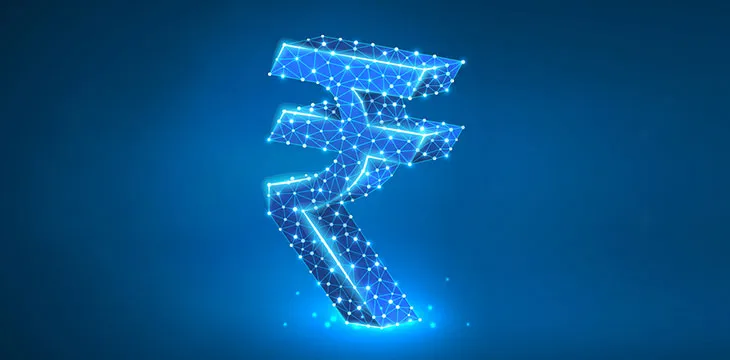|
Getting your Trinity Audio player ready...
|
India should go for a basic version of its central bank digital currency (CBDC) and then upgrade to a more sophisticated version down the line, the country’s central bank has proposed. In its latest report, the Reserve Bank of India (RBI) stated that this basic CBDC would provide a safe and convenient alternative to cash.
The report, titled “Report on Trend and Progress of Banking in India,” looked at the growth in the Indian banking sector in 2021 and its standing in the global financial space.
On CBDCs, the central bank proposed going for a basic version of a digital rupee which it believes will provide a “safe, robust, and convenient alternative to physical cash.” This basic digital rupee would offer benefits to users in terms of acceptance, scalability, liquidity, faster settlement, and ease of transactions with anonymity.
“Given its dynamic impact on macroeconomic policy making, it is necessary to adopt basic models initially, and test comprehensively so that they have minimal impact on monetary policy and the banking system,” the bank outlined.
RBI has been reportedly working on a digital rupee for some time now even as it awaits the passing of a bill that will pave the way for its use by the masses. This bill will be doubled-edged and contains sections that ban the use of decentralized digital currencies like Bitcoin, which it brands as “private cryptocurrencies.” However, as CoinGeek reported, the bill is set to be delayed for months, or more, as the Indian parliament focuses on the budget.
The report says that the Reserve Bank is still working on crucial design elements with the digital rupee. These include whether the CBDC will be retail or wholesale.
“Furthermore, in a country like India, the decision about distribution architecture, i.e., whether CBDC would be issued directly by the central bank or through commercial banks, needs to be carefully weighed,” it added.
The bank continues to pursue a digital rupee amid growing uncertainty over the future of digital currencies in the country. While the RBI has been crystal clear that it’s advocating for a blanket ban, the government has been seen to be exploring a compromise in which it could regulate digital currencies but ban them from being used as payment.
To learn more about central bank digital currencies and some of the design decisions that need to be considered when creating and launching it, read nChain’s CBDC playbook.
Watch: CoinGeek New York presentation, Increasing Footprints of BSV Blockchain in Middle East & South Asia

 07-08-2025
07-08-2025 





